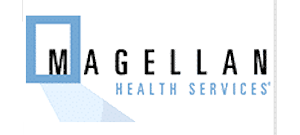Once you reach out to us here at Northern Illinois Recovery Center, we begin your treatment with an initial intake assessment. This is a meeting between you and a counselor for you to openly and honestly discuss your struggles with addiction. The conversation you have will help our staff formulate a regimen of addiction therapy services that are effective for your specific needs. Your treatment plan could involve a variety of therapies including:
- Individual therapy
- Group therapy
- Family counseling
- Trauma therapy
- 12 step program

Often, simply having a better understanding of what you’ll go through during rehab admissions can help take away some of the anxiety of entering treatment. Knowing what’s to come, you can then feel confident in yourself and your future.
Testimonials

Our clients can maintain their personal independence during treatment. They are able to maintain jobs, relationships, and family responsibilities without forgoing their much-needed treatment. At the same time, we offer varying levels of outpatient rehab. This ensures each client gets the exact level of treatment they need.
A partial hospitalization program, or PHP, works well for the most severe addiction cases and includes the most medical intervention to alleviate withdrawal symptoms. In this program, clients can work closely with medical staff to detox and ensure a safe comfortable entry into recovery.
Understanding Rehab Admissions
Our programs are centered around outpatient options in order to provide the most accessible treatment possible to our clients. Enrolling at Northern Illinois Recovery Center does not mean that you are committing to a long-term facility you’ll stay at day and night.
Intensive outpatient programs, or IOPs, are a form of outpatient programs for serious addictions cases. They also work as effective follow-ups to PHPs. Clients who don’t need medical assistance can still receive top-notch treatment and help in IOPs.
Standard outpatient programs make a great follow up program or standalone treatment. Clients with the least severe addictions find outpatient programs useful to keep them on track while maintaining their daily lives.
Insurance Verification








